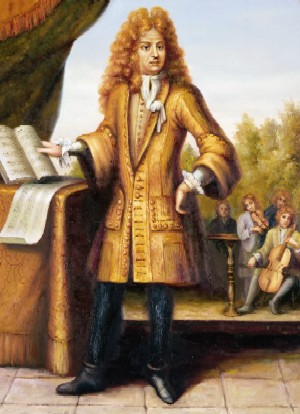DONIZETTI, G.: Roberto Devereux [Opera] (Bergamo Musica Festival, 2006)
One of Donizetti’s most emotionally raw operas, Roberto Devereux ossia Il conte di Essex was also the third to be loosely based on episodes in the life of Queen Elizabeth I. It deals with the love of Elizabeth and her favourite, the Earl of Essex, perhaps most tellingly expressed in the Act I duet, Nascondi, frena i palpiti, o misero mio core / Hide, hold back your palpitation, oh my wretched heart! Elizabeth’s subsequent abdication is, however, a matter of dramatic licence, yet provides a memorable operatic conclusion to this tragedy of love and jealousy as she despairs at the death of her lover – Quel sangue versato al ciel s’innalza (The blood that is spilt rises up to Heaven). This inaugural production of the Bergamo Music Festival 2006 features the Greek soprano and leading Donizetti specialist, Dimitra Theodossiou, and the young American baritone Andrew Schroeder, both in superb voice.
Mezzo-soprano Stéphanie d’Oustrac began her career in music and theatre at young age. She was offered her first tragic roles—Médée, Armide and Dido—by William Christie, and her commanding stage presence and impressive technique has subsequently garnered critical and public acclaim.
She has become one of the most sought-after singers in the French repertoire, with performances including Bizet’s Carmen, Berlioz’s Les Troyens and Béatrice et Bénédict, Debussy’s Pelléas et Mélisande, Ravel’s L’Heure espagnole, Massenet's Werther. She also specialises in Mozart operas, with performances including La clemenza di Tito, Don Giovanni and Idomeneo.
She has worked with renowned directors including Calixto Bieito, Robert Carsen, Romeo Castellucci, David McVicar, Laurent Pelly, Jean-François Sivadier and Dmitri Tcherniakov, and conductors such as Alain Altinoglu, Myung-Whun Chung, James Conlon, Alan Curtis, Sir Colin Davis, Adam Fischer, Philippe Jordan and John Nelson.

Italian by birth, Lully made his career in France, where he rose from the position of a page to Mlle de Montpensier to that of Composer of the King’s Music, Master of Music to the Royal Family, and to a position of complete control of all musical performances that involved singing throughout. He collaborated with Molière and with Corneille, and, more particularly, with the poet Quinault, creating comédies-ballets and tragédies lyriques, in both of which there was an element of dance (a French royal preoccupation). The most important French composer of his period, his development of the French overture—with its introductory, slow dotted rhythms and ensuing fugal section—was influential, as was his insistence on orchestral discipline, particularly in the matter of string bowing.
Stage Works
The tragédies lyriques of Lully exercised a strong influence over French opera in his lifetime and in the years that followed his death in 1687. These works are usually treatments of subjects drawn from classical mythology. With changes of fashion, they are rarely heard nowadays in the theatre, although overtures and dances from the operas may appear in instrumental programmes. The comédies-ballets, in the creation of which Molière was a junior partner, are now generally performed without the music and ballet that were essential elements in the original works (although the music for Le Bourgeois gentilhomme may be better remembered).
Church Music
Lully was also influential in the choice of music and musicians for the royal chapel. His compositions for the church include a number of motets: some six grands motets and 14 petits motets. Examples of the first are the fine setting of the Dies irae from the Requiem Mass for double choir, the Te Deum, and the Miserere, the last a favourite of the King. Examples of the second are his settings of the Vespers Psalm Dixit Dominus, the Anima Christi and the Regina coeli.
Instrumental Music
Instrumental works by Lully include various sets of dances from his stage works and 18 Trios pour le coucher du Roi.































![DONIZETTI, G.: Roberto Devereux [Opera] (Bergamo Musica Festival, 2006) DONIZETTI, G.: Roberto Devereux [Opera] (Bergamo Musica Festival, 2006)](https://cdn.naxos.com/sharedfiles/images/cds/hires/8.660222-23.jpg)